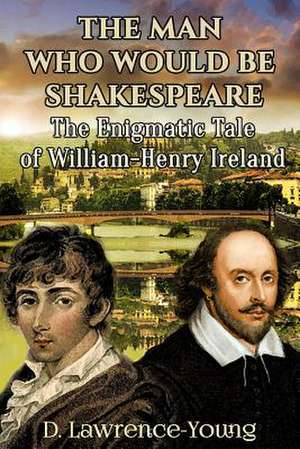The Man Who Would Be Shakespeare
Autor D. Lawrence- Youngen Limba Engleză Paperback
Preț: 102.13 lei
Nou
Puncte Express: 153
Preț estimativ în valută:
19.55€ • 20.33$ • 16.14£
19.55€ • 20.33$ • 16.14£
Carte indisponibilă temporar
Doresc să fiu notificat când acest titlu va fi disponibil:
Se trimite...
Preluare comenzi: 021 569.72.76
Specificații
ISBN-13: 9780692322802
ISBN-10: 0692322809
Pagini: 316
Dimensiuni: 152 x 229 x 17 mm
Greutate: 0.42 kg
Editura: Enigma Press
ISBN-10: 0692322809
Pagini: 316
Dimensiuni: 152 x 229 x 17 mm
Greutate: 0.42 kg
Editura: Enigma Press
